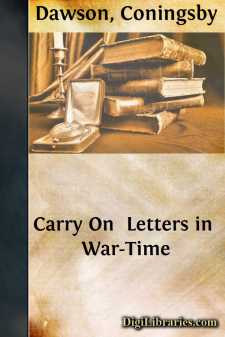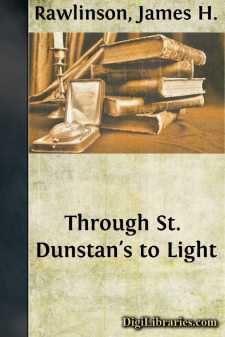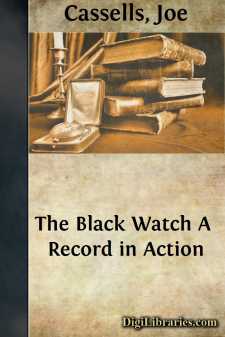Biography & Autobiography
- Adventurers & Explorers 15
- Artists, Architects, Photographers 16
- Business 2
- Composers & Musicians 14
- Criminals & Outlaws 5
- Editors, Journalists, Publishers 6
- Educators 1
- Entertainment & Performing Arts 3
- General 73
- Health, Exercise & Fitness 1
- Historians 3
- Historical 83
- Law Enforcement 1
- Lawyers & Judges 3
- Literary 147
- Medical 7
- Military 48
- Naturalists, Gardeners, Environmentalists 8
- Personal Memoirs & Diaries
- Philosophers 3
- Political 9
- Presidents & Heads of State 38
- Religious 38
- Rich & Famous 27
- Scientists 13
- Women 31
Personal Memoirs & Diaries Books
Sort by:
EASTWARD HO! Our Battalion of the Manchesters was typical of the old Territorial Force, whose memory has already faded in the glory of the greater Army created during the War, but whose services in the period between the retreat from Mons and the coming into action of "Kitchener's Men" claim national gratitude. Their earlier history hardly emerges from parochialism. Founded in 1859 and...
more...
ANTE-BELLUM Before the war the Canadian Militia consisted of about 75,000 of all ranks and all grades of efficiency. To a neutral eye it must have appeared to be in a highly disorganised condition, for battalions and corps had sprung up here and there throughout the country with no proportion existing between them and the other arms of the service. And yet within a short two months after the outbreak...
more...
by:
Coningsby Dawson
INTRODUCTION The letters in this volume were not written for publication. They are intimate and personal in a high degree. They would not now be published by those to whom they are addressed, had they not come to feel that the spirit and temper of the writer might do something to strengthen and invigorate those who, like himself, are called on to make great sacrifices for high causes and solemn duties....
more...
SQUAD DRILL Our Sergeant looked at us contemptuously and we looked anxiously back at him. Then he gave his first instructions: "Now I'm goin' ter show yer 'ow ter do squad drill. It's quite heasy—yer've only got ter use a bit o' common sense an' do hexac'ly as I tell yer. Now we'll start wi' the turns. When I gives the order Right Turn, yer turn...
more...
CHAPTER I MY TICKET FOR BLIGHTY In the World War, it was not only the men who went "over the top" to assault enemy positions who ran great risks. Scouts, snipers, patrols, working parties, all took their lives in their hands every time they ventured into No Man's Land, and even those who were engaged in essential work behind the lines were far from being safe from death or wounds. On the...
more...
by:
Joe Cassells
CHAPTER ONE For more than two years now, I have been trying to forget those first months of the war. The months when the Black Watch and other regiments of the immortal “contemptible little army” marched into the unknown against the fiercest, most efficient military power the world, up to that time, had known; the months when hidden enemies struck swiftly mystifying blows with strange weapons, the...
more...
by:
Arnold Bennett
I The Zone Of Paris From the balcony you look down upon massed and variegated tree- tops as though you were looking down upon a valley forest from a mountain height. Those trees, whose hidden trunks make alleys and squares, are rooted in the history of France. On the dusty gravel of the promenade which runs between the garden and the street a very young man and a girl, tiny figures, are playing with...
more...
by:
Ian Hamilton
PREFACE On the heels of the South African War came the sleuth-hounds pursuing the criminals, I mean the customary Royal Commissions. Ten thousand words of mine stand embedded in their Blue Books, cold and dead as so many mammoths in glaciers. But my long spun-out intercourse with the Royal Commissioners did have living issue—my Manchurian and Gallipoli notes. Only constant observation of civilian...
more...
Dear H. Your letter has found me in the midst of work quite unconnected with this hideous war in which for the last eighteen months we in England have lived and moved and had our being. My literary profession, indeed, has been to me, as to others, since August 4th, 1914, something to be interposed for a short time, day by day, between a mind tormented and obsessed by the spectacle of war and the...
more...
by:
Ian Hamilton
K.'S ADVICE AND THE P.M.'S ENVOY 11th July, 1915. Worked in my office from early morning till 12.45. The whole scheme for to-morrow's attack is cut and dried, according to our cloth: time tables fixed and every round counted. Freddy Stopford and his Staff turned up from Mudros. Stopford in very good form. The first thing he did was to deliver himself of a personal message from Lord K. He...
more...











